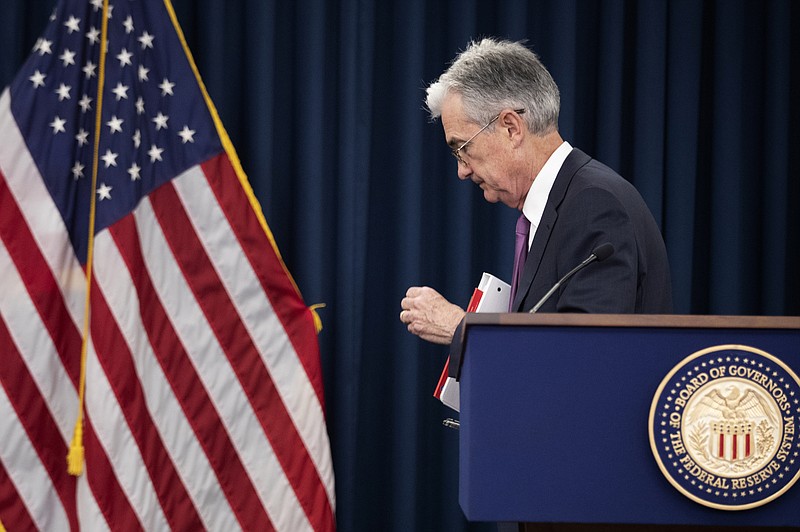WASHINGTON - President Donald Trump lacks official power to make the Federal Reserve cut interest rates, but he may have found a way to force its hand: stoking economic uncertainty.
The Fed's chairman, Jerome Powell, has signaled that he and his colleagues could cut interest rates at their upcoming meeting as inflation remains stubbornly low and risks, including Trump's trade war with China, threaten economic growth. Powell, speaking in Paris on Tuesday, reiterated that the Fed would act as appropriate to sustain the economic expansion.
Trump continues to keep the Fed - and the world - on policy tenterhooks, saying at the White House on Tuesday that there was a long way to go to reach a trade deal with China and suggesting he could still impose tariffs on more Chinese goods. The president, speaking during a meeting of his cabinet, also took a swipe at the Fed, saying, "We would have done even better had we had a Federal Reserve that didn't raise interest rates so quickly."
Trump said China was under no such pressure from its central bank, noting that President Xi Jinping was "his own Fed."
"They're pumping money into their system and they're lowering rates very substantially," he said.
The White House's assault on the central bank, underway for about a year now, is unlikely to directly influence Fed policy. But by roiling trade tensions, Trump is continuing to throw uncertainty into a global economy that is already struggling with weakened demand from China and a slowdown in manufacturing.
That, rather than his badgering, could force the Fed's hand, helping to lock in a rate cut at its meeting on July 30-31.
Uncertainties about the economic outlook "have increased, however, particularly regarding trade developments and global growth," Powell said in prepared remarks delivered in France, also emphasizing risks including the debt ceiling.
"We are carefully monitoring these developments and assessing their implications for the U.S. economic outlook and inflation, and will act as appropriate to sustain the expansion," he said.
An interest-rate cut now could seem unusual, because unemployment is at a nearly 50-year low, growth is holding up and the stock market has recently touched record highs. While Trump regularly celebrates that economic progress, his trade policies could crimp the expansion.
The Trump administration has already placed tariffs on $250 billion of Chinese goods, and is threatening to impose them on another $300 billion of goods - practically all remaining imports from China - if the country does not meet U.S. demands. Trump has also threatened auto tariffs on Europe and Japan, a move that would hit German carmakers particularly hard.
Cutting rates could provide an economic backstop and signal that central bankers are ready and willing to act should geopolitical risks escalate or persist, causing economic data to further sour. Because policy works at a lag, moving early and preemptively could offer perks.
